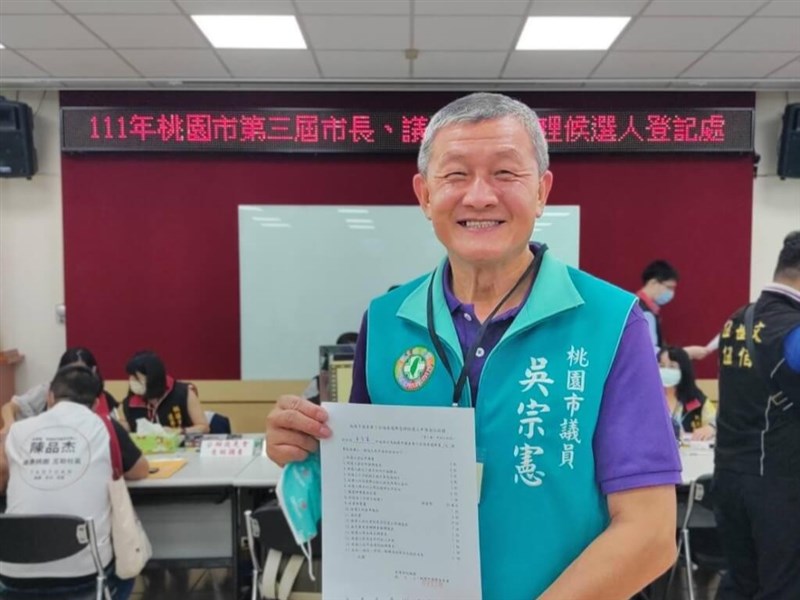
Taoyuan, Nov. 20 (CNA) Former Taoyuan City Councilor Wu Tsung-hsien (吳宗憲) has been indicted for allegedly claiming more than NT$14.55 million (US$464,931) for "phantom assistants" over two decades, prosecutors said Thursday.
According to the Taoyuan District Prosecutors Office, the 66-year-old Wu used the IDs and bank information of several acquaintances to file expense claims for nonexistent employees from 2002 to 2022.
Wu is alleged to have collected the salaries and bonuses of these "phantom assistants" both during his time as a Taoyuan County councilor from 2002 to 2009 and as a Taoyuan City councilor following the municipality's upgrade in 2014.
Prosecutors have also indicted Wu's former assistant, a 51-year-old woman surnamed Fan-Chiang (范姜).
Prosecutors stated that, with the conclusion of the office's investigation on Thursday, charges have been brought against a total of eight individuals.
Wu, first elected as a Kuomintang (KMT) councilor, was expelled from the party in 2016 for openly supporting Democratic Progressive Party (DPP) presidential candidate Tsai Ing-wen (蔡英文).
He later served as a Taoyuan City Councilor for the DPP before losing his seat in the 2022 local elections.
In 2024, Wu was convicted of giving cash bribes to voters during his 2022 campaign and received a suspended sentence.
-
Society
Molly the hamster finds new home after street life ordeal in New Taipei
02/15/2026 06:35 PM -
Business
CPC to freeze fuel prices over Lunar New Year holiday
02/15/2026 05:25 PM -
Politics
Taiwan vice premier returns home after trade agreement signed with U.S.
02/15/2026 04:45 PM -
Society
Kaohsiung zoo's African elephant Ali passes away at age 52
02/15/2026 04:01 PM -
Sports
Figure skater Li makes history for Taiwan at 2026 Olympic Winter Games
02/15/2026 03:52 PM